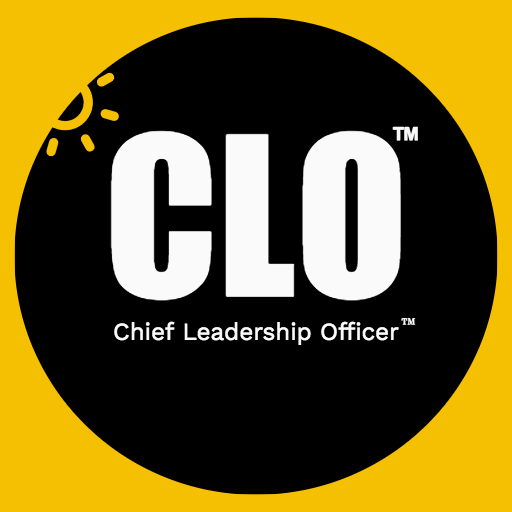 Pre-order Chief Leadership Officer
Pre-order Chief Leadership Officer
Will you rise to the challenge?
The Chief Leadership Officer is charged with two primary responsibilities:
- Positioning the business to lead in its chosen field
- Positioning people to lead in their lives and on their jobs
In both responsibilities the role begins with positioning.
Today, let’s explore the second of these two charges. Positioning people to lead involves two aspects of their:
- Life
- Job
The prevailing “wisdom” of the Industrial Revolution was to compartmentalize your life and work. Keeping them separated reflected this era of efficiency and specialization of work. In essence, Corporate America was built on this notion. What a convenient rationale for the dehumanization of people as units of the production process. Think about it. Where do you think the term “human resources” came from? It was good for business to treat people badly.
Such poor treatment of people eventually gave rise to Labor Unions and strikes to counteract the negative effects of man’s inhumanity to man. Working conditions may have improved, but the dehumanization simply went underground and emerged whitewashed as “human resources departments,” a pejorative, yet accurate term if you really think about it.
For example, today human resources departments take great pride in the snake oil notion of work-life balance. This notion is simply the modern beat of the work-life separation song sung since the original pace of Taylor’s time motion studies. There’s cover when the company can shift the burden of blame or responsibility onto the workers for achieving work-life balance.
“We’re doing our part offering our Work-Life Balance Program,” says the well intended, yet misguided HR professional. In fact, they’re an unwitting accomplice to an archaic CEO-led system built upon people as things not souls.
Look around! Such objectification of life legitimizes the distancing of our thinking to the consequences of our behaviors and decisions. “In the name of business,” becomes a sacred altar for human sacrifice. We’re convinced our personal sacrifice on the job is a necessary evil for our resume building and career promotions–all in the name of doing it for our family or some other outside cause. Mastery of winning within a dysfunctional system has too often meant that we’ve lost our true selves in the process–a high price for a “cost of living” pay raise.
Have you read Gallup’s Report on the sorry state of Employee Engagement? Over two-thirds of employees are disengaged in their work. Of course they are. For generations, we’ve been schooled to disengage and deny our heart’s desire as frivolity. Denial of our destiny leaves us burned out and bummed out consuming a dulling drug of our choice ranging from chocolates to wines to entertainment to illegal substances. Our first-world problems will only get worse until we decide to get better.
Thanks to Chief Leadership Officer, the book and the CLO™ leadership style along with On-Purpose®, let’s close this experiment in history. Chief Leadership Officer is an upbeat awakening to those who feel called to lead a business, a department, a team, or even a family. The On-Purpose Person and My On-Purpose Folder are two simple, yet powerful resources for humans to become better leaders of their lives.
People who are more successful at leading their lives bring far less baggage, confusion, and disruption into the workplace. They’re also far more likely to be trusted and respected by their peers so they emerge as leaders with or without the formal title. The carry authority because they’re authentic.
On-the-job skills or technical training is the easy part! Mentoring toward leadership is difficult because few of us have had mentors or true leaders worth following. We’ve become such a specialized society that few can see the forest and the trees with appropriately accurate clarity.
Why do companies now want employee engagement? The power of the whole person — body, mind, and spirit — engaged in the purpose of the organization can move mountains. Treating people rightly is a return to our humanity. And it is good for business. It always has but it is back in fashion.
We’re not wired to live our lives in such neat, tidy boxes of personal indifference. Our lives matter. We want to make a positive contribution. The inherent value of people is the next frontier of business. CLOs, not CEOs, will lead us there in the decades to come.